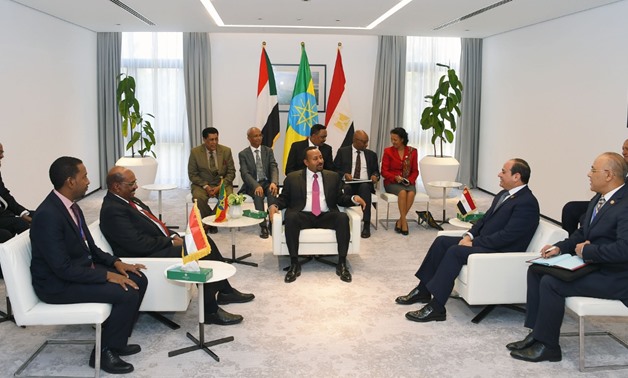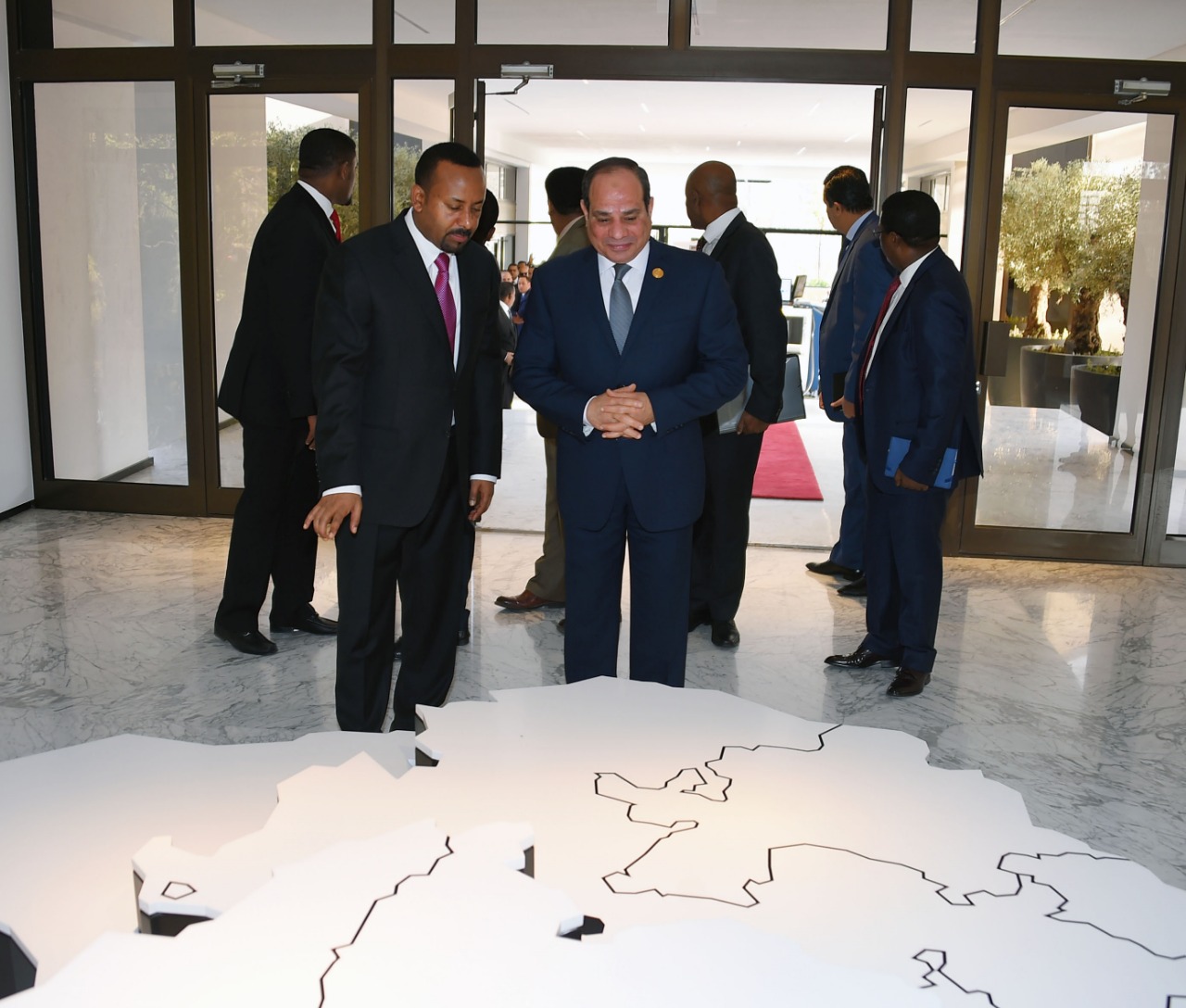
Egypt’s President Abdel Fatah al-Sisi (L), with his Sudanese counterpart, Omar Hassan al-Bashir (C), and former Ethiopian Prime Minister Hailemariam Desalegn - Reuters/Mohamed Nureldin Abdallah
CAIRO- 10 February 2019: A tripartite summit between Egyptian President Abdel Fatah al-Sisi, Sudanese counterpart Omar al- Bashir and Ethiopian Prime Minister Abiy Ahmed kicked off in Addis Ababa on Sunday to tackle the controversial Grand Ethiopian Renaissance Dam (GERD).
The summit is being on the sidelines of the 32nd session of the African Union Summit. The leaders will also discuss the African and regional issues of mutual concern amid Egypt’s presidency of the African Union this year.

President Abdel Fatah al-Sisi and Ethiopian Prime Minister Abiy Ahmed on the sidelines of the 32nd African Union Summit in Addis Ababa, Ethiopia. February 10, 2019. Press Photo
For seven years, constant tripartite talks have been between top officials from Egypt, Sudan and Ethiopia to reach an agreement on the period of time required for filling the Ethiopian reservoir, as the two other states are concerned over its effect on their share of the Nile River.
In 2015, the three countries signed the Declaration of the Renaissance Dam Principles Charter that tackles the management of the dam with written guarantees, and states that the dam’s reservoir cannot be filled without the approval of Egypt and Sudan. In December 2017, Egypt demanded the intervention of the World Bank in the matter, a move that was rejected by Ethiopia.
However, a breakthrough was recently witnessed in the ongoing series of discussions among three countries.
Ethiopia has started building the dam since May 2011; since then Cairo accused Addis Ababa of constructing the dam “without consultation” in accordance with international accords, while Addis Ababa replied that it is not binding to any international accords.
The deals in question date back to 1929 and 1959 and were during the time of British colonization, where a total of 80 billion cubic meters of Nile water was allocated to Egypt (55.5 billion), and for Sudan (18.5 billion). The agreements also granted Egypt the right of veto against any projects that could be established on Uganda, Kenya, Tanzania and Sudan that may cause harm to its share, leaving out Ethiopia.


Comments
Leave a Comment